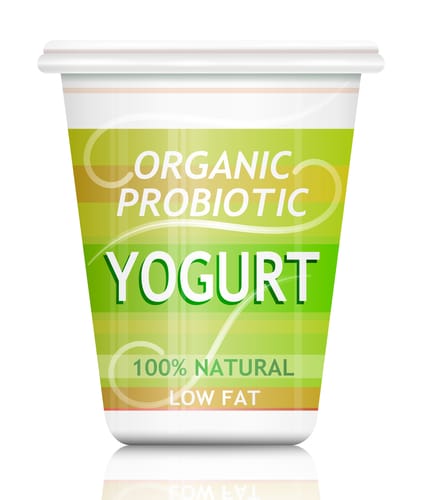
Probiotics Reduce “Intestinal Leakage” in Athletes
If you work out or participate in sports, you may have experienced symptoms like diarrhea, bloating, abdominal cramping or nausea after a workout. Exercise sends more blood to your hard-working muscles and less of it to your gut. Normally, the lining of your intestines is impermeable to proteins and other food components but when blood flow is reduced through exercise, small gaps open up that allow particles to escape from your gut into your bloodstream. This is referred to as “leaky gut.” When particles that normally remain in the intestines enter the bloodstream, the immune system sees these “invaders” as a threat and launches an immune response, leading to inflammation and, in more serious cases, autoimmune problems.
According to a recent study published in the Journal of the International Society of Sports Nutrition, probiotics help to seal these intestinal gaps so that there’s less risk of gut leakage, inflammation, and digestive stress. What probiotics do is make the intestinal barrier stronger and more resistant to leakage. This not only reduces the risk of intestinal problems during exercise, but it’s also important for overall health. There’s evidence that a leaky gut may play a role in some autoimmune diseases.
Probiotics May Reduce the Risk of Colds in Athletes
More frequent and intense workouts reduce immunity to colds and flu, but adding more probiotic-rich foods to your diet could offer some protection. A study carried out in competitive male cyclists showed that those who took a daily probiotics supplement experienced fewer cold symptoms – and when they did experience them they were shorter in duration. This isn’t surprising since probiotics have been linked with immune health. Adding more probiotic-rich foods may help you avoid those colds and flu bugs that keep you from working out.
A Reduction in Belly Fat?
If you work out, probiotics may help you shed more stubborn belly fat. A study published in the European Journal of Clinical Nutrition showed that participants that drank a milk product that contained a probiotic bacteria called Lactobacillus gasseri for three months experienced a 4.6% reduction in belly fat. A group who ate a similar diet but no probiotic bacteria didn’t enjoy this benefit.
More Probiotics, Please?
If you’re active there are some good reasons to add more probiotics to your diet. Yogurt with active cultures is one source. Fermented foods like tempeh, miso, sauerkraut, kefir, and kimchi are other good sources. If you choose yogurt as your probiotic source, look for one that has a “live and active cultures” seal to ensure you’re getting an adequate quantity of probiotics. One to two servings of yogurt a day should be enough to get the benefits.
References:
Nutraingredients.com. “Probiotics May Boost Gut Health for Athletes”
Nutraingredients-USA.com “Probiotics May Reduce Cold/Flu Symptoms for Male Athletes”
J. Immunol 168: 171-178, 2002.
Nutraingredients.com “Probiotics May Help Fat and Weight Loss: Study”
Related Articles By Cathe:
Fitness and Probiotics: 3 Ways Probiotics Can Help You if You Work Out
4 Things You Need for a Successful Exercise Recovery
The Problem with Probiotic Supplements: Are They What They Seem to Be?
Can Endurance Exercise Change Your Gut Microbiome?
Fermented Foods vs. Probiotic Supplements: Is One Better Than the Other?

